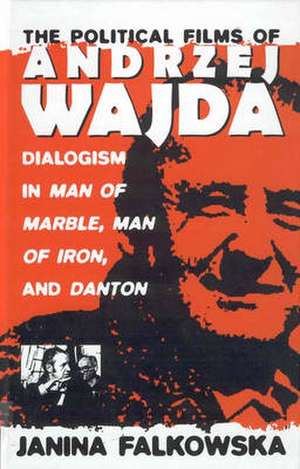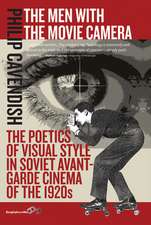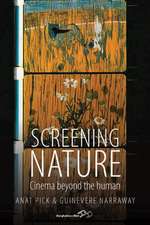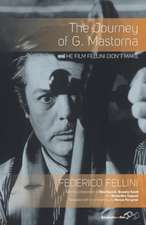The Political Films of Andrzej Wajda
Autor Janina Falkowskaen Limba Engleză Hardback – 7 apr 1996
Preț: 744.88 lei
Preț vechi: 967.38 lei
-23% Nou
Puncte Express: 1117
Preț estimativ în valută:
142.55€ • 154.79$ • 119.74£
142.55€ • 154.79$ • 119.74£
Carte tipărită la comandă
Livrare economică 22 aprilie-06 mai
Preluare comenzi: 021 569.72.76
Specificații
ISBN-13: 9781571810052
ISBN-10: 1571810056
Pagini: 256
Dimensiuni: 147 x 225 x 18 mm
Greutate: 0.37 kg
Editura: BERGHAHN BOOKS INC
ISBN-10: 1571810056
Pagini: 256
Dimensiuni: 147 x 225 x 18 mm
Greutate: 0.37 kg
Editura: BERGHAHN BOOKS INC
Textul de pe ultima copertă
Andrzej Wajda is considered one of Poland's - many would say of the world's - greatest film directors. During the thirty-five years of his activities in film, theater, and television, his work always arouses strong emotions and provokes intense debates in the media. His films deal with historical and political issues concerning Polish society, the fate of Poland, its glorification and its restoration, the essence of the Polish character, and the nature of political power. Controversial, painful, stimulating, and cinematically beautiful, they never fail to fully engage the spectator. This is particularly true for his major political films, which form the basis of this study. Applying Bakhtin's concept of dialogism, the author shows how a creative interaction between the image on the screen and the viewer is established through Wajda's films. At the same time, she offers a detailed analysis of the historical events leading up to the collapse of the socialist system in Poland.













